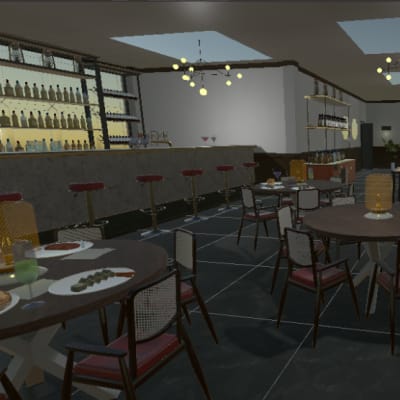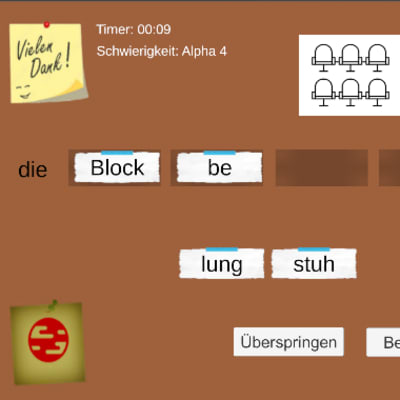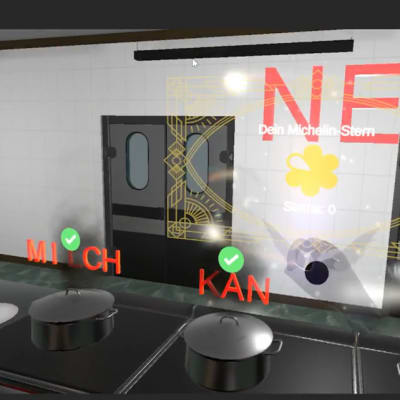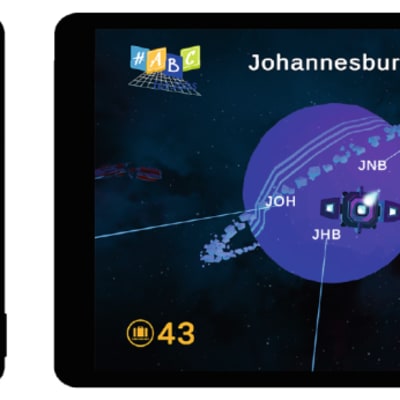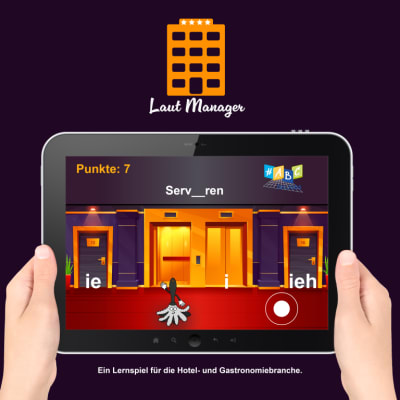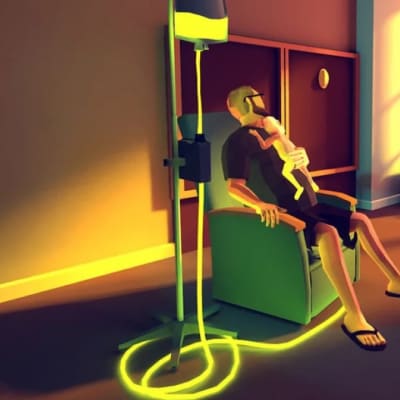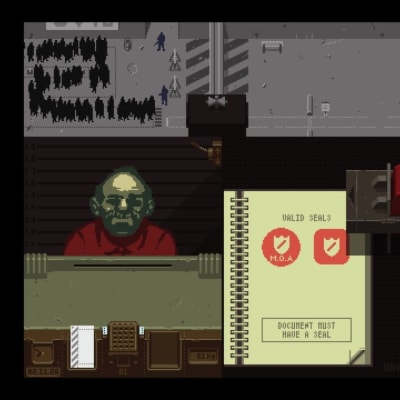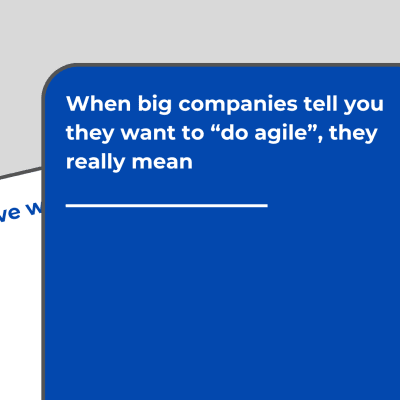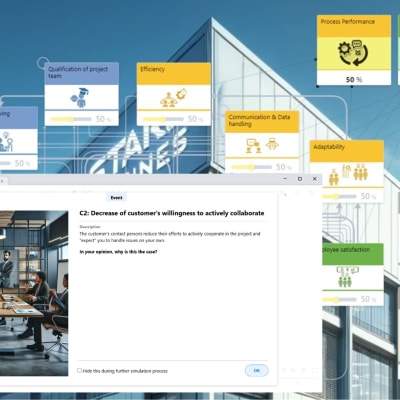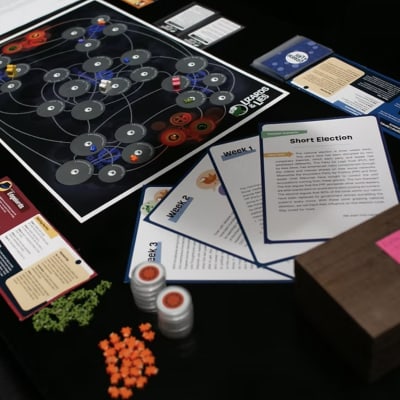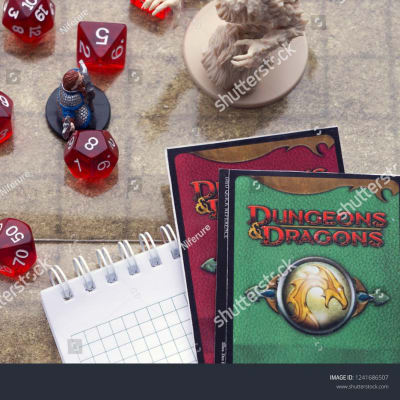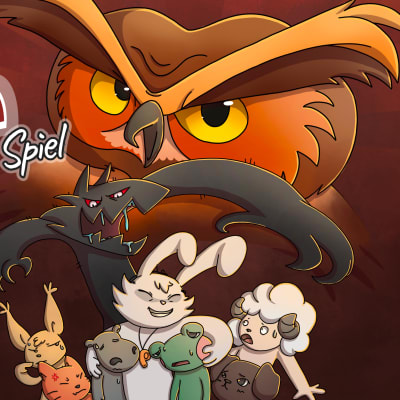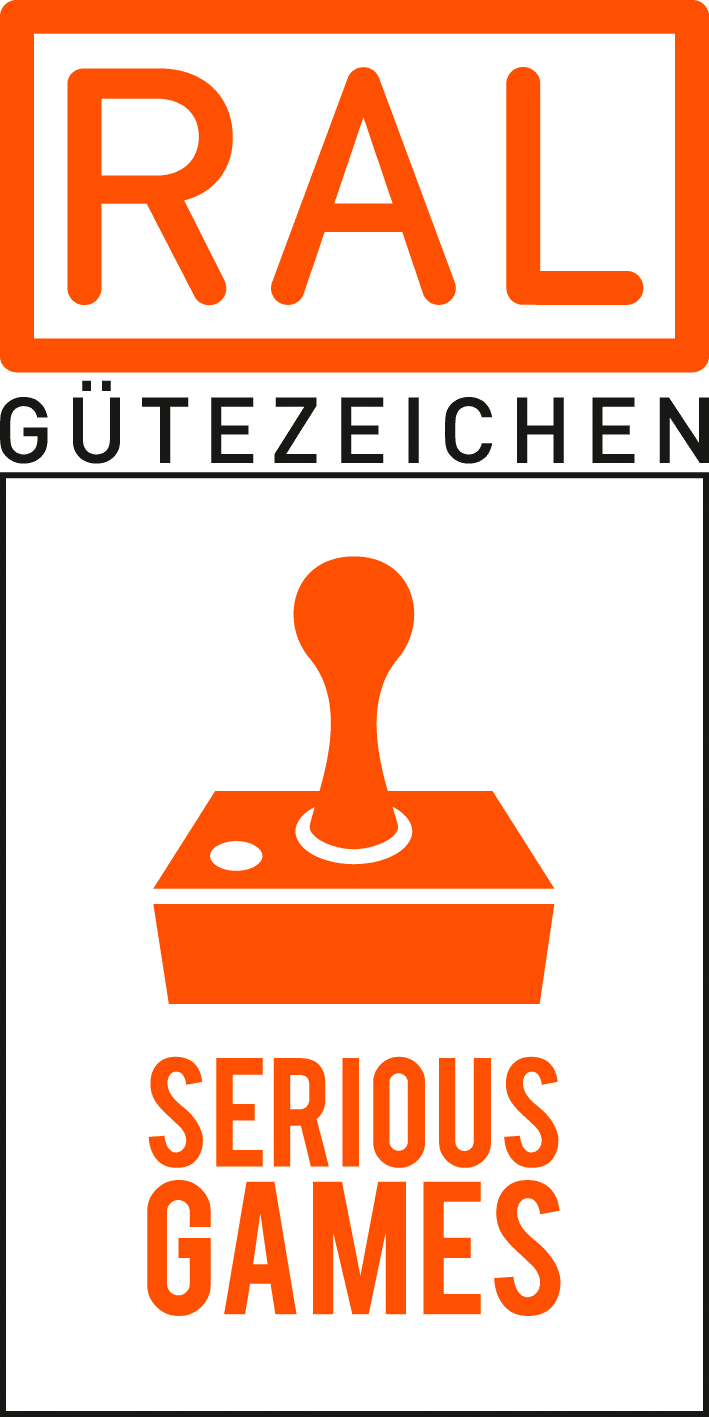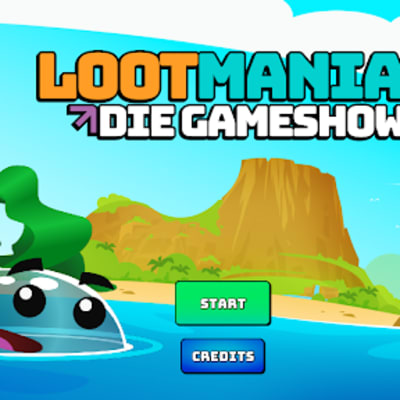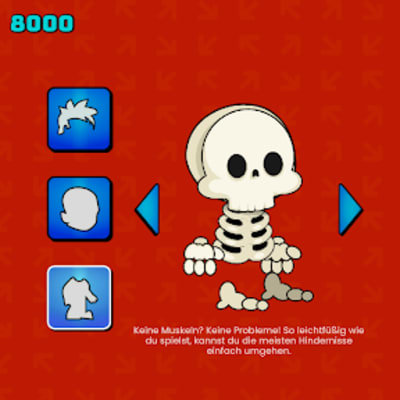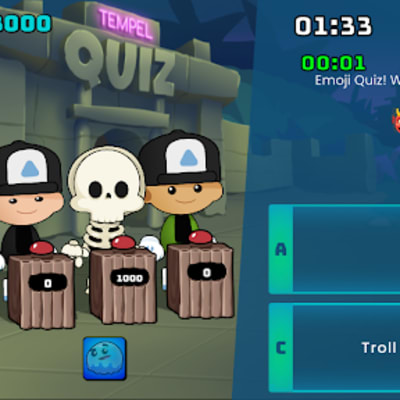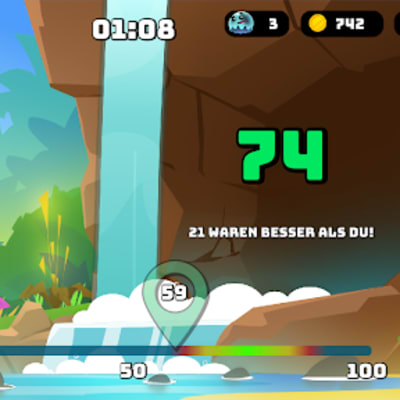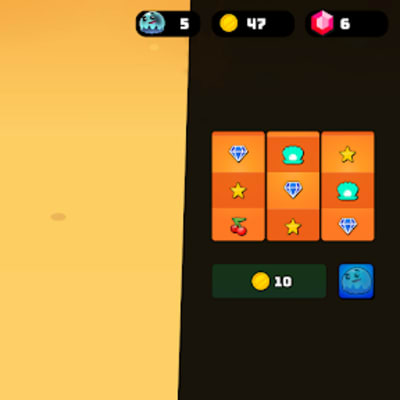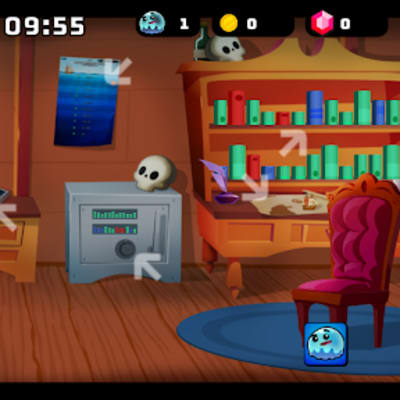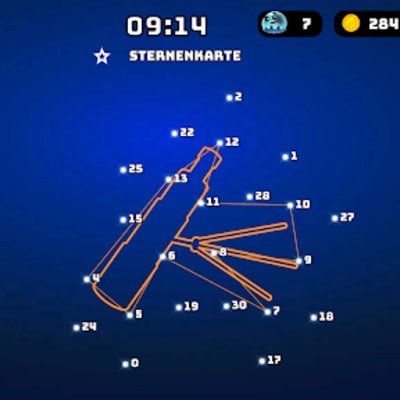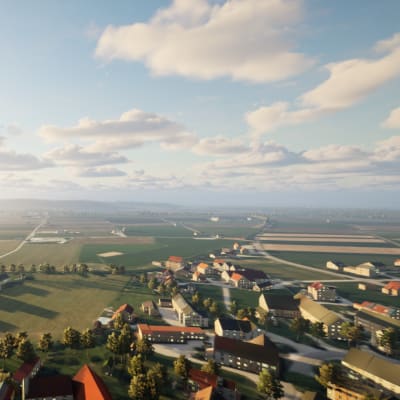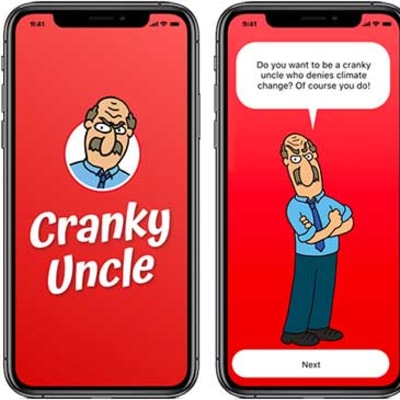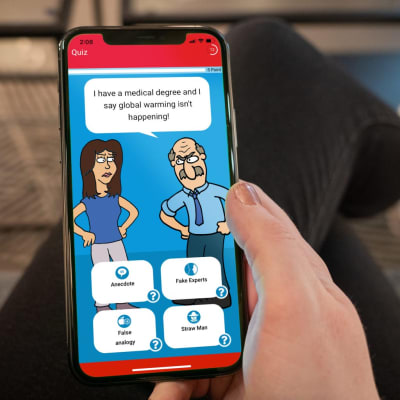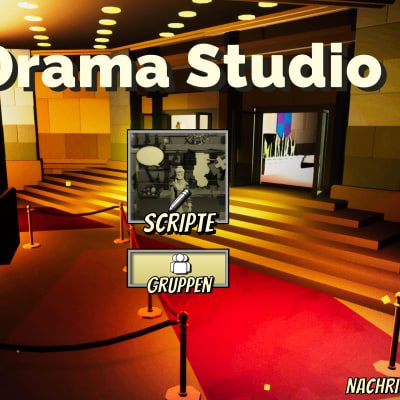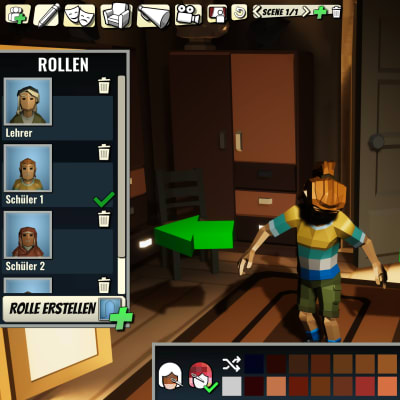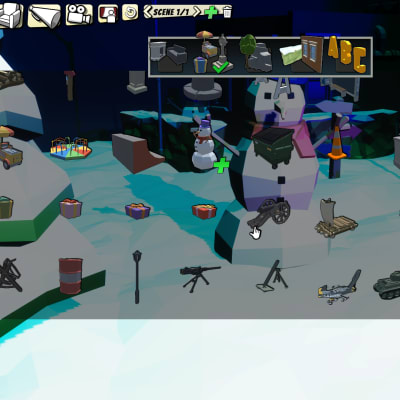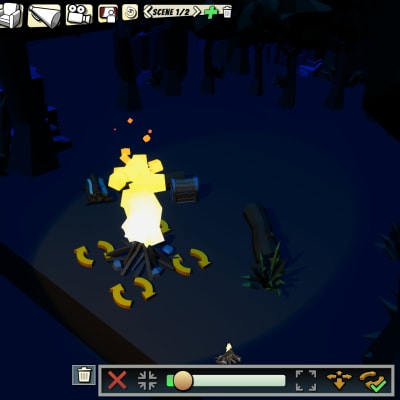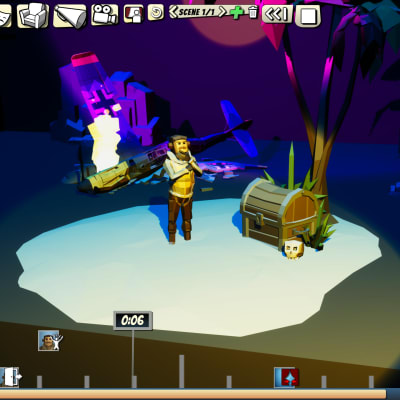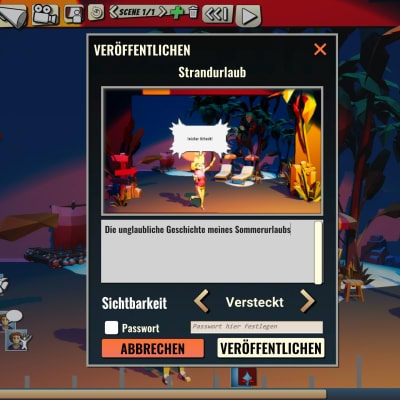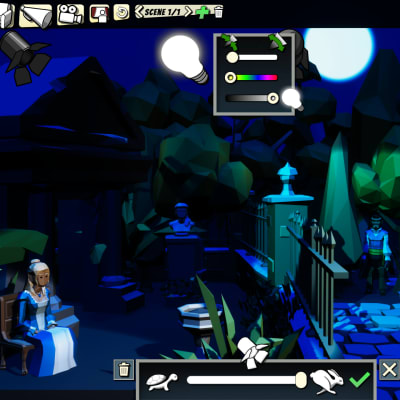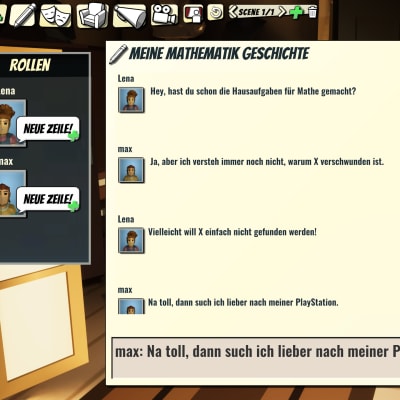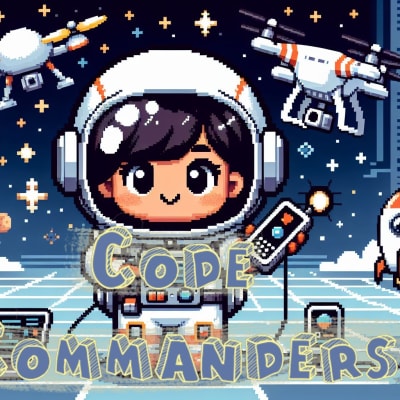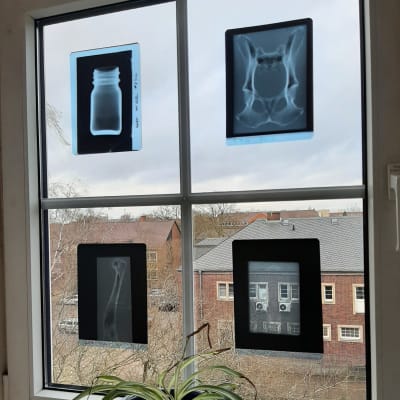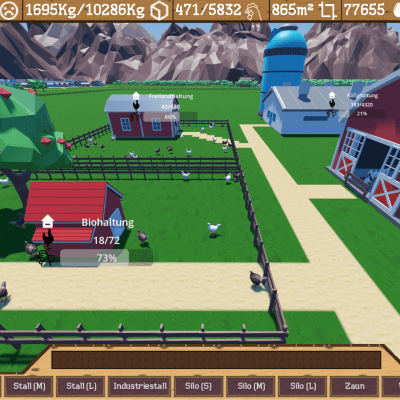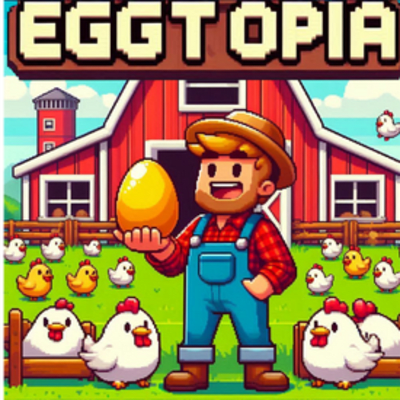Serious Games
Escape the Plate
Escape the Plate is an educational game in which players solve puzzles inside a digital escape room. The goal is to decipher a numeric door-lock code by completing various exercises in a virtual restaurant, thereby successfully escaping the room. Players tackle tasks that build foundational literacy skills—for example, syllabification, spelling, and completing cloze (gap-fill) texts. Each solved task reveals one digit of the required code. This product was funded as part of the National Decade for Literacy and Basic Education 2016–2026 with support from the Federal Ministry for Education, Family Affairs, Senior Citizens, Women and Youth, under grant number W-1505A-AOG.
Syllable Soup
Syllable Soup is a virtual-reality serious game in which players take on the role of a sous-chef in a Michelin-star kitchen in Paris. By correctly assembling syllables, they collect Michelin stars while fending off approaching cockroaches. The game blends puzzle, dexterity, and movement mechanics; strengthens language skills, reaction speed, and concentration; and, thanks to its modular design, offers flexible options for expansion. This product was funded as part of the National Decade for Literacy and Basic Education 2016–2026 with support from the Federal Ministry for Education, Family Affairs, Senior Citizens, Women and Youth, under grant number W-1505A-AOG.
Sky Dash
“Sky Dash” is a serious (digital) game for mobile devices. The learning game teaches the acquisition of three-letter codes (IATA codes). Its target group is adults with limited literacy skills who are enrolled in a vocational or continuing training program in ground logistics at an international airport. For each question, players must choose the correct answer from three IATA codes. This is not done by simply clicking; instead, players must skillfully pilot their own aircraft and navigate to the correct three-letter code. This product was funded as part of the National Decade for Literacy and Basic Education 2016–2026 with support from the Federal Ministry for Education, Family Affairs, Senior Citizens, Women and Youth, under grant number W-1505A-AOG.
Loud Manager
"Loud Manager" is a serious (digital) game for PCs and mobile devices. The learning game is designed to improve and consolidate orthographic knowledge. In addition, it fosters players’ phonological awareness, reading fluency, and retention in connection with domain-specific vocabulary. The target group is low-literate adults working in the hotel and hospitality sector. Laut-Manager uses a points-based game mechanic. The game belongs to the “sidescroller” genre, a subgenre of jump ’n’ run platformers and racing/runner games, characterized by the avatar automatically moving along a course without stopping while the player must avoid obstacles and, where appropriate, collect items. The underlying objectives of the game are: Avoiding “enemy” objects. Choosing the correct sound for the missing part of a target word (for example: ss for the word Me__er [Messer]). Players control the character “Staubi” through a seemingly endless hotel corridor. From time to time, the game pauses at room and elevator doors, from which the sounds to choose from appear for the target word. The correct sound must then be selected by clicking. If the correct sound is chosen, players receive a point and another cloze word appears. As soon as a wrong selection is made, the game provides feedback by showing what the correct answer would have been, highlighting it in green. The product was funded as part of the National Decade for Literacy and Basic Education 2016–2026 with funds from the Federal Ministry for Education, Family Affairs, Senior Citizens, Women and Youth under the funding code W-1505A-AOG.
That Dragon, Cancer
That Dragon, Cancer is a narrative-based digital game created by Ryan and Amy Green with Numinous Games, released in 2016. It tells the autobiographical story of their son Joel’s battle with terminal cancer, combining real-life audio, symbolic imagery, and interactive storytelling. Players experience emotional vignettes depicting the family’s moments of hope, despair, and faith. The gameplay is minimalist, emphasizing empathy and reflection rather than challenge or competition. The game explores themes of love, loss, spirituality, and human resilience, inviting players to contemplate the meaning of life and death.
Papers, Please!
Papers, Please is a puzzle simulation game developed by indie designer Lucas Pope and released in 2013. Set in the dystopian communist state of Arstotzka, the player assumes the role of a border inspector responsible for verifying travelers’ documents under increasingly complex rules. Through repetitive tasks, time constraints, and moral dilemmas—such as allowing refugees to reunite or denying entry to protect national security—the game confronts players with questions of duty, morality, and dehumanization. Its minimalist design, combined with emotional tension and bureaucratic realism, turns administrative work into a platform for ethical introspection.
Cards Against Agility
Cards Against Agility is a serious game that facilitates learning and reflection about Agile project management and team dynamics. Inspired by the mechanics of Cards Against Humanity, it substitutes spontaneous humor with structured, scenario-based reflection on Agile practices, challenges, and missteps. Developed by the Play4Agile Community in 2017, the game supports experiential learning through discussion and group interaction. It is used by Agile practitioners, corporate trainers, and educators to foster understanding of collaboration, adaptability, and innovation in Agile environments.
StarsEngines
StarsEngines is a digital simulation game developed in 2020 and substantially enhanced in 2024 at Esslingen University of Applied Sciences under the direction of Prof. Dr. Siegfried G. Zürn. It integrates systems thinking with project management education, using the impactation® Method to emphasize interdependencies between technical, organizational, and social systems. Participants navigate a simulated hybrid engine R&D project, facing realistic constraints and events requiring adaptive and strategic responses. Through iterative decision-making rounds and structured debriefs, learners experience the complexities of systemic management while developing analytical and teamwork competencies.
Lizards and Lies
Lizards and Lies is a 2-versus-2 analog board game that models the movement of problematic information across social media platforms. Originally developed as a research project to simulate digital information flows, it was later adapted for educational use in late high school and university settings. Thematically centered on conspiracy theories, it divides players into teams representing malign and corrective actors, illustrating the challenges of moderating and combating false content. Through gameplay and structured debriefing, players reflect on the tension between disinformation, platform moderation, and digital literacy.
Dying Debate: A Nano Larp
Developed by Guardian Adventures and released for beta testing in October 2024, Dying Debate is a short-form live-action role-playing game (nano LARP) that facilitates meaningful dialogue on end-of-life decision-making. Players assume the roles of siblings debating care options for their terminally ill parent with severe dementia. The game emphasizes empathy, ethical reasoning, and communication in emotionally charged contexts. A structured pre-game workshop and debrief ensure participant safety and support reflective learning. Designed for adult learners 18+, the game is adaptable for in-person or remote formats and particularly relevant to ethics, healthcare, and social work education.
Dungeons & Dragons
Dungeons & Dragons (D&D) is a tabletop role-playing game (TTRPG) created in the 1970s by Gary Gygax and Dave Arneson. It is a collaborative storytelling system where players assume character roles guided by a Dungeon Master (DM). Recognized as a cornerstone of role-playing games, D&D has evolved over decades, with the fifth edition (2024) praised for accessibility and narrative engagement. The game fosters creativity, cooperation, and problem-solving while promoting empathy and ethical reflection. This chapter explores its pedagogical use in teacher education for inclusion, diversity, and cognitive empathy.
Uuugh – False Play
“Uuugh – Falsches Spiel” is a serious game that helps you understand perpetrator strategies in the context of (sexualized) violence in a playful way and see through them in real life. Would you recognize if someone was manipulating you? Especially with the aim of committing (sexual) violence? In Uuugh – Falsches Spiel, you become the main character – but in a completely different way than you might be used to: you take on the role of the perpetrator. What may sound unusual at first glance has an important reason: you learn how perpetrators act in the context of (sexualized) violence, how they manipulate, isolate, and make people dependent—and that's exactly what helps you see through such strategies more quickly in real life.
LOOTMANIA
Die Gameshow
In the serious game „Lootmania“, children and young people can playfully explore the hidden dangers of dark patterns - manipulative game design elements. In our game, such mechanisms are intentionally integrated to make them tangible within a safe environment. After playing Lootmania, participants are specifically informed about how dark patterns work. The classroom context provides the educational framework: it prepares for the gaming experience and concludes with a shared reflection.
Aerion - FlightSimVR - Pilot Training
Virtual Reality, Mixed Reality and Dome Projection
The dream of flying has inspired people for hundreds of years. FlightsimVR is a multiuser flight game that enables the realistic flying of small aircraft in a team. The game elements are used specifically to ensure motivation in the acquisition of flying skills. The missions can be completed in single-player mode with classic flying and in a team with guide support in exciting environments and technical challenges. The 3D environment is based on the processing of Gis Maps data and can be accessed digitally via coordinates anywhere in the world. Game mechanics: In addition to controlling the aircraft using conventional methods such as VR/PV/console controllers, innovative hand gesture controls are also offered. Mixed reality is used to control real parts of the cockpit and reduce motion sickness in VR. Dynamic weather conditions and simulated defects on the aircraft provide realistic variety and motivate the player to solve the tasks set. In exciting multi-user missions, you can learn to fly and use the functions of the aircraft realistically. Applied technologies: Project processing and management is implemented with Scrum in Miro. The modeling of all assets for environments and aircraft data is implemented with Blender and Adobe Substance Painter. Unreal Engine 5.1 and C++ are the platform used for programming all functions. Unique selling point: The innovation lies in the control of the airplanes in virtual reality by using the XR camera image and hand gesture control in a 3D environment that works with physical lighting methods (Unreal with Lumen) and intelligent data reduction (Unreal with Nanite). The aim is to become one of the leading companies for the best graphics quality on the market and to be a pioneer in the field of education and edutainment for interactive flight training.
Cranky Uncle
Cranky Uncle is an educational digital game developed by academics and was published in 2020 by John Cook, a scientist at Monash University, in collaboration with the creative agency Goodbeast. The aim of the game is to train students in how to deal with misinformation by becoming a ‘Cranky Uncle’ themselves, a science denier and conspiracy theorist who uses various argumentation techniques to reject the general scientific consensus. Through humorous cartoons with a thematic focus on climate change, deep insights into the tactics of science denial are provided to help resist misleading persuasion attempts in the future and improve critical thinking. As they play, players are put to the test in various quiz types, need to identify deceptive arguments, receive instant feedback in response to correct or incorrect quiz answers, and move up and down a scoring system.
Drama Studio
Do you want to inspire your students to create amazing 3D animated stories? Do you want to engage them in learning through gaming, animation, and storytelling? Then you need to try Drama Studio! Drama Studio is a game-based multiplayer tool that allows your students to make their own 3D animated stories. They can choose from a variety of characters, scenes, props, and sounds to bring their imagination to life. Drama Studio is easy to use and fun to teach. Your students can record their own voice, control the movements of the characters, and edit the scenes with simple gestures. They can also collaborate with their peers in real time, and share their stories with the world. Drama Studio is not only a creative tool, but also a learning tool. You can use Drama Studio to explore different topics, themes, and genres, and develop your students' skills in storytelling, communication, collaboration, and critical thinking. You can also use Drama Studio to help your students express their emotions, opinions, and perspectives, and foster empathy and respect for others. Drama Studio is the ultimate tool for learning in the 21st century. It combines the best of gaming, animation, and storytelling, and makes learning fun and engaging. So what are you waiting for? Start your Drama Studio adventure today!
Code Commanders
Programming learning for children
Discover an intuitive programming learning game for children! Code Commanders is an educational game that teaches programming through a visual programming language like Scratch in an easy and fun way. It offers both single and multiplayer modes where players can solve puzzles by hacking and reprogramming a drone. The game dynamically adapts to players' level of knowledge by using knowledge space theory to create a personalised learning experience. Developed from a series of student projects, ‘Code Commanders’ is not just a game, but an exciting educational journey that inspires young minds to explore the world of technology and develop their own creative solutions. Download ‘Code Commanders’ now and embark on an adventure into the world of programming!
Educational Escape Room Physics
The Escape Room Physics is an educational escape room for the minor subject training of veterinary medicine students and covers the main thematic areas of physics (mechanics, thermodynamics, electricity, classical optics, atomic physics, magnetism, X-rays). The 10 physics puzzles are worked through sequentially in groups of 3 (boxes with code), whereby the concept is easily transferable to other subject groups with a moderate depth of knowledge in physics. 16 side puzzles were introduced, so-called Eurogame Puzzles - based on the principle of European Boardgames: The students receive victory points for solving the side puzzles and can thus compare themselves with other groups. The Eurogame Puzzles (tactical secundary puzzles) are optional and serve as motivation/gamification. They are not graded and the time required to complete the escape room is 2.5 hours. For details: https://www.tiho-hannover.de/kliniken-institute/fachgebiete-und-forschungszentren/fachgebiet-allgemeine-radiologie-und-medizinische-physik/lehre/physik-escape-room
MIKA-Game®
Keen to learn about data protection, data security, or media literacy and reflection in an enjoyable way? The MIKA-Game has got you covered! It offers a fun and effortless way to sharpen your media and IT skills. The MIKA-Game is a quiz that draws on topics from the MIKA-Seminars, a continuing vocational education and training program (CVET) aimed at in-company trainers, plus content from two of the new vocational education and training standards, which supplement all current training regulations in Germany. You can play solo, challenge a mate, team up, or even take part in a classroom challenge. The game’s available as an app for Android and iOS, or you can play it online.
Eggtopia
The Animal Welfare Game
Eggtopia places you in the role of a chicken farmer, where acquiring knowledge is crucial for navigating the challenges posed by politics and society.
